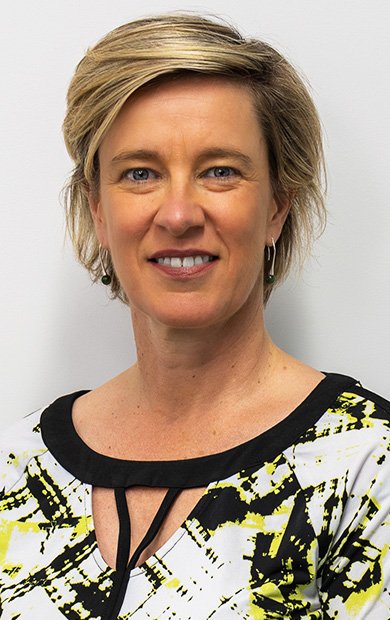Standards Australia partners with DFAT to build skills in Critical and Emerging Technologies

Last week Standards Australia, in partnership with the Australian Department of Foreign Affairs and Trade (DFAT), hosted a four-day virtual event centred on Critical and Emerging Technologies (CET): ‘Incubating Capacity for Critical and Emerging Technology Standards'.
Critical technologies are current and emerging technologies with the capacity to significantly enhance or pose risk to our national interest. These technologies affect all facets of international relations, including Australia’s national security, economic security, the protection and realisation of human rights and freedoms, sustainable development and international peace and stability.
As a result of the growing interest in this area, there is a need to build knowledge and share best practice processes nationally and internationally.
‘Incubating Capacity for Critical Emerging and Technology Standards’ consisted of a series of seminars and masterclasses focussed on Artificial Intelligence, Smart Cities, Advanced Manufacturing and Standards and Statecraft.
The goal of this event was to build knowledge and practical skills that accelerate development, adoption and use of recognised international standards for CET within the ASEAN region. 158 participants attended, and included local and international experts, standards developers, policymakers and regulators.
The event hosted 26 speakers, from 13 countries, including policymakers, technical experts and standards development leaders. Notable speakers included:
- Dr Tobias Feakin, Ambassador for Cyber Affairs and Critical Technology
- Professor Aleksandar Subic, Deputy Vice-Chancellor (STEM) and Vice President Digital Innovation, RMIT University
- Vu Thi Tu Quyen Acting Director, International Cooperation Department, Directorate for Standards, Metrology and Quality, Vietnam, amongst many others.
Alongside the learning sessions, participants were also offered networking opportunities that connected key stakeholders, national standards bodies, digital policymakers, and businesses across the ASEAN region.
Day 1 - Artificial Intelligence:
Day one saw participants and experts discuss Artificial Intelligence, and its evolving role.
Trust was a key theme throughout the expert presentations, and speakers presented on the role for international standards for supporting trust in artificial intelligence, with a focus on responsible AI, data security and the importance of defining common terminology for emerging technologies such as AI. In addition, interoperability and ensuring ASEAN perspectives were identified as key benefits for increasing involvement in international standards.
Participants heard case studies from the ASEAN region, including an overview of implementation of AI in the Philippines and the use of biometrics standards for the Indonesian e-ID card.
Day 2 - Smart Cities:
When it came to Smart Cities, speakers highlighted the role of standards in supporting these technologies, and for placing human needs at the centre of smart cities development.
The majority of participants agreed that standards were crucial for the emergence and adoption of new technologies in the region and standards for critical and emerging technologies are in high demand in the ASEAN region. There is also a strong preference for standards to be integrated effectively into regulation across the ASEAN region.
Day 3 - Advanced Manufacturing:
Participants and speakers discussed existing standards and frameworks for Advanced Manufacturing and explored key issues such as data privacy and the impact of advanced manufacturing on employment.
Participants agreed that there were strong benefits in increasing involvement in international standards development technical committees focused on advanced manufacturing. They also agreed that the benefits of international standards will be realised most effectively if local and regional perspectives have been included in the standards development process.
Day 4 – Standards and Statecraft:
The fourth and final day of the event saw attendees explore how we can create a common language between Standards professionals and policy makers, how Standards can be used as an effective tool for regulation and how we can increase policy maker involvement in Standards development.
Participants observed two case studies - Kishor Narang took them through how to make an effective business case for the adoption of international Standards and Fadilah Baharin presented on Malaysia’s strategy for navigating Standards and conformance.
Overall, the event highlighted the keen interest in standards for emerging technologies that exists within the ASEAN region.
“It was fantastic to see so much interest and engagement in this Summit across both industry and government in Southeast Asia. It’s never been so important to have these discussions about the crucial role critical and emerging technology standards have in fostering safe, interoperable and secure technologies,” said Dr. Tobias Feakin, Australia’s Ambassador for Cyber Affairs and Critical Technology.
“DFAT was proud to support Standards Australia for this project through our Cyber and Critical Technology Cooperation Program.” Dr. Feakin concluded.
“Critical and Emerging Technologies continue to be of importance in the ASEAN region. As such, we strive to recognise and share intel and strategic value from our international partners in this field to understand and implement best practise processes,” said Chief Executive Officer of Standards Australia, Adrian O’Connell.
“Partnering with DFAT allowed us to host this important event, and we look forward to continuing to work with ASEAN governments to support standards development.” Mr O’Connell concluded.
Recordings of the sessions and reference materials are available via the event platform for the next 6 months. Please register here to view.
media enquiries
For media enquires, please contact:

